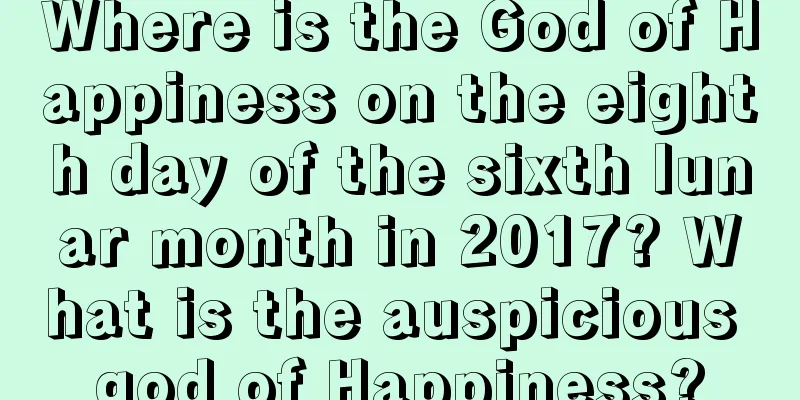What is the origin of New Year’s Day? What legends are there about New Year’s Day?

New Year's Day is the first day of the year, which is the traditional New Year for people all over the world. But do you know the origin of New Year's Day? What legends are there about New Year’s Day? Shuimoxiansheng.com has carefully compiled detailed information about the eleventh month of the lunar calendar in 2018. If you want to know the auspicious and inauspicious days in the eleventh month of the lunar calendar, just go to Shuimoxiansheng.com.Origin of New Year's Day:New Year's Day, which is January 1st of the Gregorian calendar, is commonly known as the "New Year" in most countries in the world. Yuan means "beginning", so the beginning of any number is called "yuan"; Dan means "day", so "New Year's Day" means "the first day". New Year's Day is also known as "Sanyuan", namely the first day of the year, the first day of the month, and the first day of the hour. The name "New Year's Day" in Chinese history refers to the first day of the first lunar month in the Xia calendar (lunar calendar, also known as the lunar calendar). The word "New Year's Day" that is recorded in existing documents first appeared in "Book of Jin".After the Revolution of 1911, in order to "follow the Xia calendar to follow the agricultural season and the Western calendar to facilitate statistics", it was decided to use the Gregorian calendar in the first year of the Republic of China (actually used in 1912), and January 1 of the Gregorian calendar was designated as "New Year", but it was not called "New Year's Day". In 1949, the People's Republic of China adopted January 1 of the Gregorian calendar as New Year's Day, so New Year's Day is also known as the "Gregorian year" or "Gregorian year" in China. The concept of "New Year's Day" has different meanings in different eras and countries. Most countries in the world have adopted the internationally accepted Gregorian calendar and regard January 1st of each year as "New Year's Day." New Year's Day legends:Stories in Memory of Yao:During the prosperous era of Yao and Shun more than 4,000 years ago, Emperor Yao was diligent in his work and did many good things for the people, and was loved by the people. However, because his son was not talented and not very capable, he did not pass the throne of "Son of Emperor" to his son, but passed it to Shun, who was both virtuous and talented. Yao said to Shun: “You must pass the throne well in the future, so that I can rest in peace after my death.” Later, Shun passed the throne to Yu, who had made great contributions to flood control. Yu, like Shun, was close to the people and did many good things for the people, and was very loved. Later, people regarded the day when Emperor Shun offered sacrifices to the heaven and earth and the former Emperor Yao after Yao's death as the beginning of the year, and called the first day of the first lunar month "New Year's Day", or "Yuan Zheng", which was the ancient New Year's Day. The emperors of all dynasties held celebrations, ceremonies and prayer activities on New Year's Day, such as offering sacrifices to gods and ancestors, writing couplets on door doors, writing the word "Fu", and dancing with dragon lanterns. The people also gradually formed entertainment and celebration activities such as offering sacrifices to gods and ancestors, pasting spring couplets, setting off firecrackers, staying up all night, eating reunion dinners, and numerous "community fire" activities. Xin Lan, a poet in the Jin Dynasty, once wrote a poem called "Yuan Zheng": "Yuan Zheng marks the beginning of the New Year's Day, and Jiaqing begins from here. Everyone plays the wine cup to celebrate the longevity of the Chinese New Year, and everyone is happy and joyful." It describes the New Year's Day celebration scene. Nile River high tide times: Around 50,000 years ago, the lifestyle of the ancient Egyptians had changed from nomadic to agricultural, and they settled on both sides of the Nile River. Whether their agriculture could be successful had a lot to do with the flooding of the Nile River. The ancient Egyptians discovered through long-term observation that the flooding time of the Nile River was regular. They recorded the time on bamboo poles each time, from which they learned that the time between two floods was approximately 365 days. They also discovered that when the first rising tide of the Nile River reached the vicinity of today's Cairo, it was also the time when Sirius and the sun rose from the horizon at the same time. Therefore, the ancient Egyptians set this day as the beginning of the year. This is the earliest origin of New Year's Day. |
Recommend
Is it not appropriate to set up the bed one day after Laba Festival on the ninth day of the twelfth lunar month in 2019? Appreciation of poems about Laba Festival!
Introduction: Generally, you need to choose an aus...
Is the eighth day of the seventh lunar month in 2018 a suitable date for traveling?
Introduction: In traditional Chinese culture, it i...
What are the do's and don'ts on the tenth day of the tenth lunar month in 2017?
A gust of cold wind blows by, and we enter the ea...
Is it good to have a haircut on June 23, 2020? Check the lucky position of the god of happiness on August 12
Introduction: In some special periods, you also ha...
Is August 28, 2022, the Autumnal Equinox, a good day? Is it suitable for engagement?
The eighth month of the lunar calendar is coming t...
Is January 23rd of the lunar calendar 2020 an auspicious day? Is it a good idea to start renovation?
The pros and cons of starting renovations at diffe...
Where is the God of Wealth on April 28th of the lunar calendar in 2020?
Where is the God of Wealth on April 28th of the l...
What are the seven things you shouldn’t do on New Year’s Day? What are the taboos on New Year’s Day?
Introduction: The first day of the Lunar New Year ...
Is the seventh day of the tenth lunar month in 2021 a good date? Is it suitable for breaking ground?
In the tenth month of the lunar calendar, there ar...
Can I get married and get a marriage certificate on the third day of the fourth month (May 25) in the Year of the Rat in 2020? What are the precautions for choosing an auspicious day?
Choosing an auspicious day for marriage - Can you...
Is it suitable to set up the bed on the seventh day of the fourth lunar month in 2019? Is it suitable to set up the bed on Yang Gong’s death anniversary?
Introduction: In our country's traditional cul...
How many days will the heavy snow last in 2021? What is the temperature during the Big Snow solar term? What are the three signs of the Great Snow solar term?
The Big Snow solar term arrives in the cold wind o...
Is it good for people born on the sixth day of the Lunar New Year in 2022? What kind of personality does a person born on the sixth day of the first lunar month have?
The sixth day after the Spring Festival is the &qu...
Does the seventh lunar month have thirty days? When is the Qixi Festival in the seventh month of the lunar calendar?
How many days are there in a lunar month? The main...
What are the do’s and don’ts in the twelfth lunar month? What can’t you do in December 2019?
The twelfth lunar month is cold, and it is also th...









